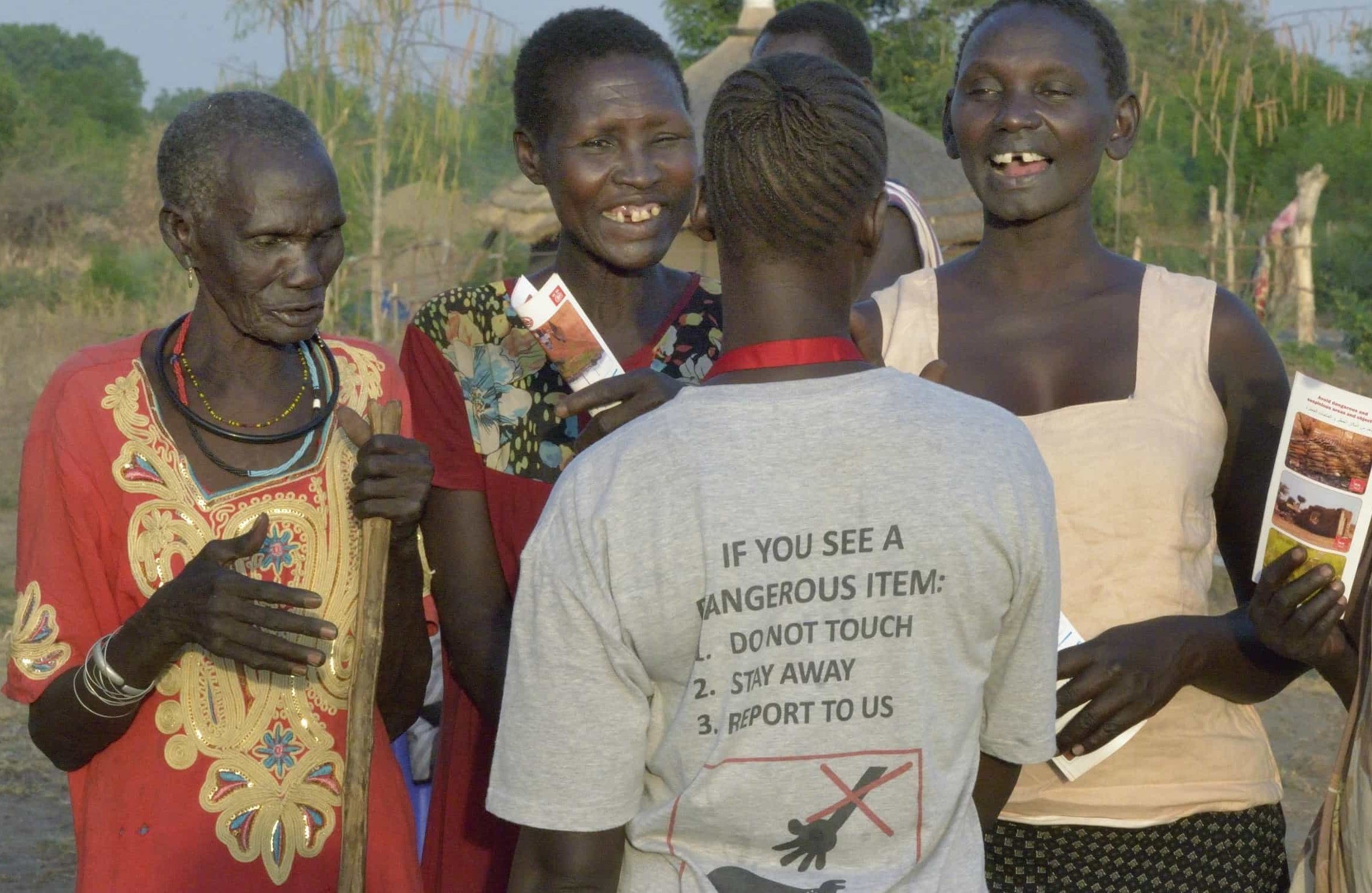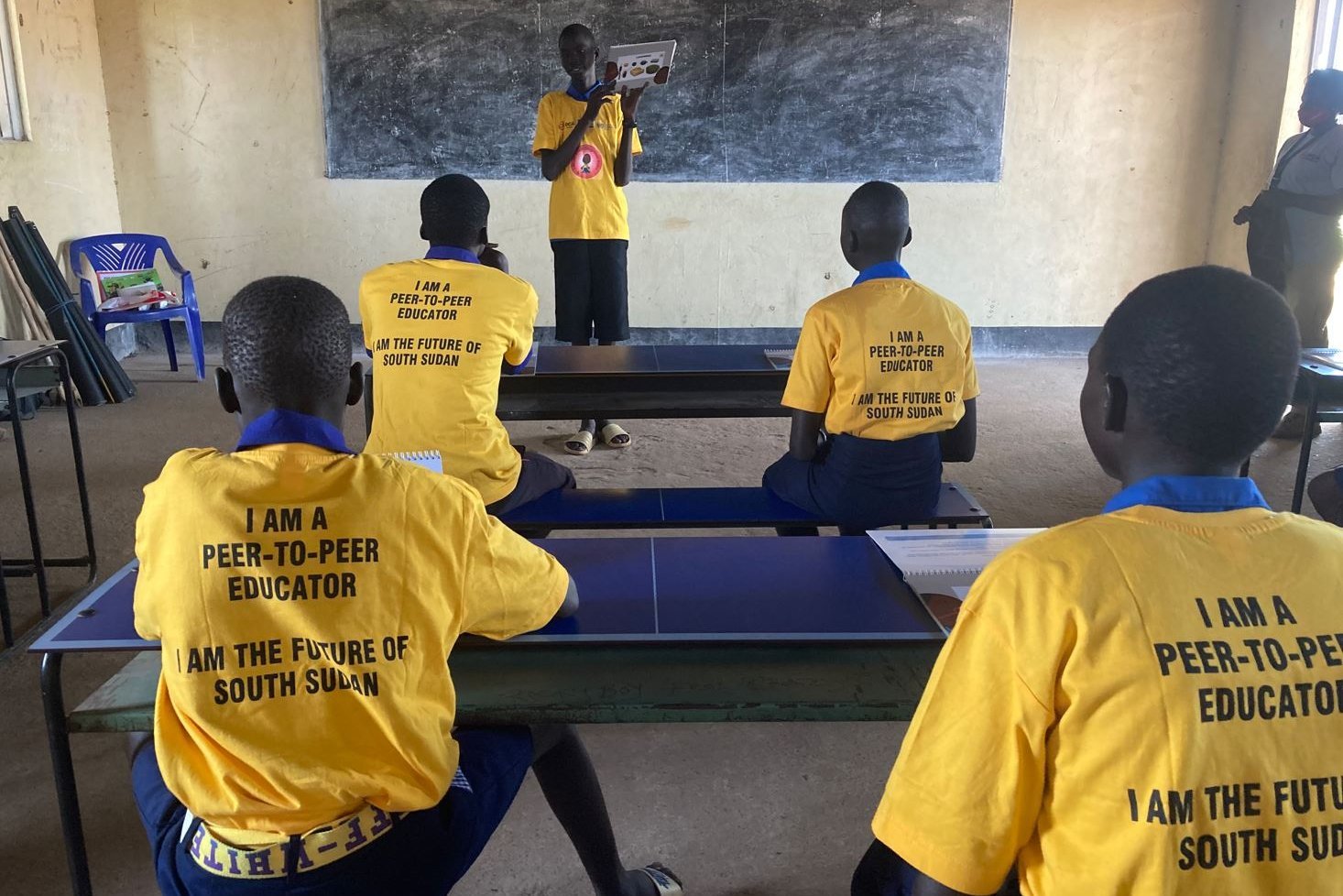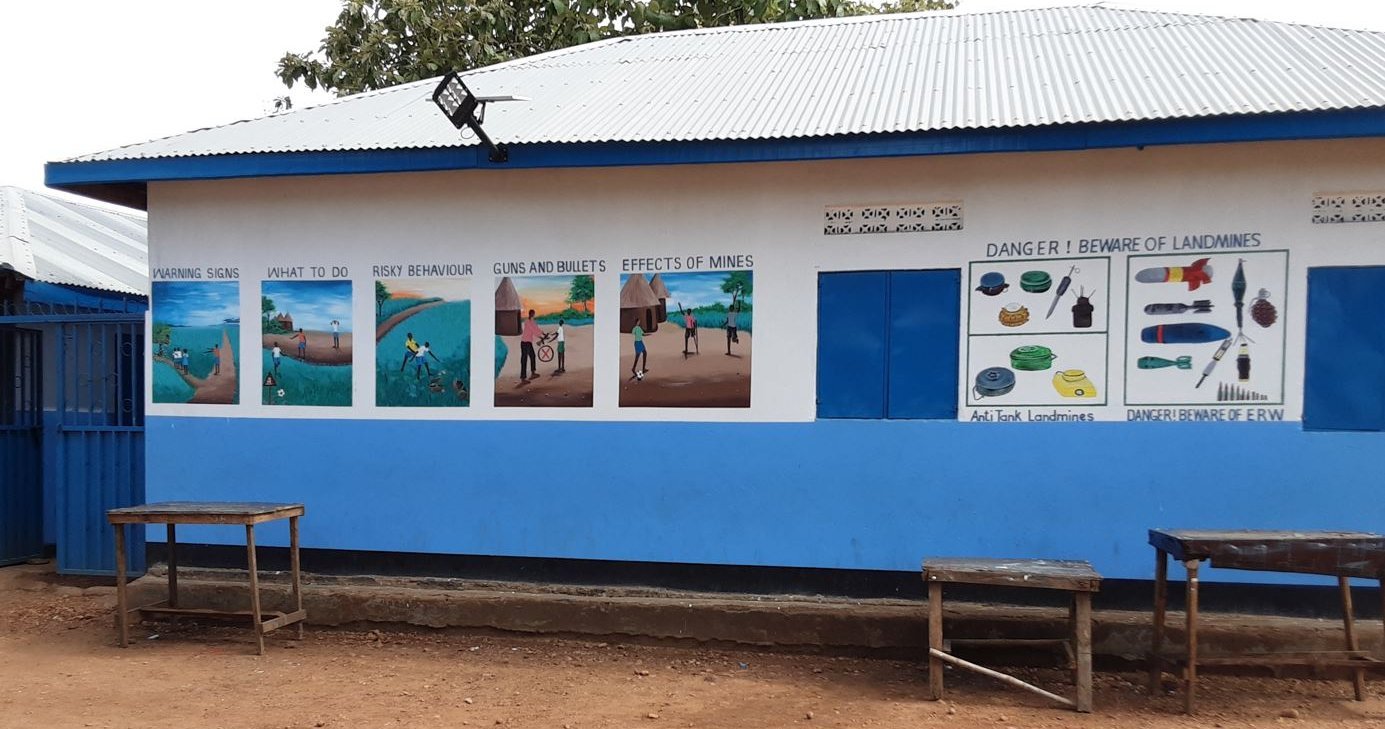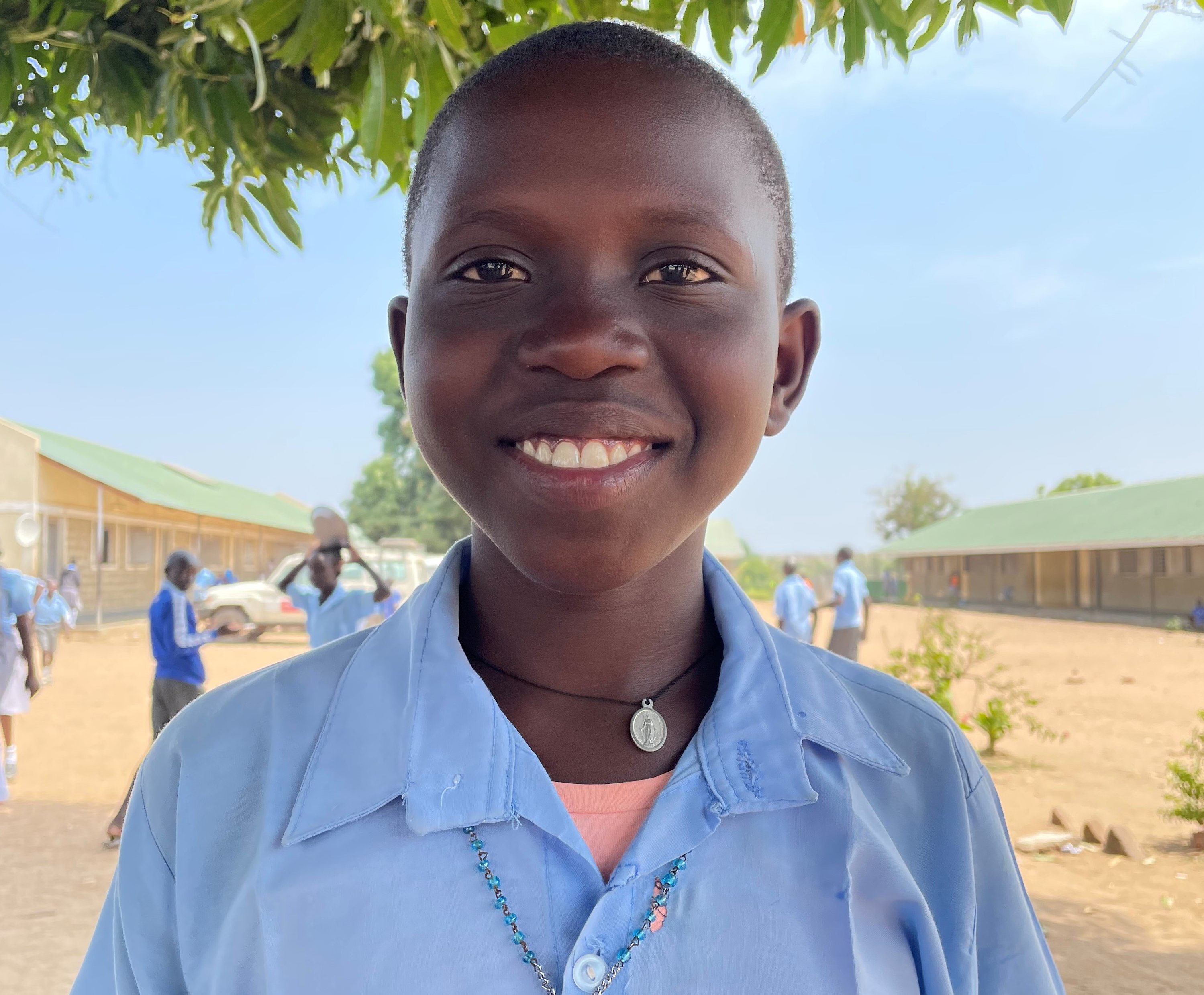SOUTH SUDAN
Risk education | Project duration: since 2015
South Sudan is the world's youngest nation. The region has been a theatre of virtually uninterrupted war for more than fifty years. Although the conflict that broke out again in 2013 after a short break officially came to an end in the summer of 2018, it has led to one of the greatest humanitarian catastrophes the world has ever witnessed. Millions of people are fleeing the war zone, dependent on aid organisations and threatened by hunger and disease – and masses of explosive remnants of war that also impede the aid workers.
The project
Clearing mines during an ongoing conflict is extremely dangerous. Demined areas are soon contaminated again due to fighting. WWM therefore concentrates on educating the population. We finance a mobile DanChurchAid (DCA) team that educates people living in mined areas using methods appropriate for their age and gender. It also trains youths and adults as "ambassadors".



Case Story: Helen would like to become a risk educator herself one day
For the first time, 13-year-old Helen Zereda attended a risk education course on landmines and unexploded ordnance. Her parents never told her directly about these dangers, but they forbade her and her siblings to use certain paths in the village. After Helen was educated by our local partner organisation about the risks of explosive remnants of war, she now also understands the strong reactions of her parents if she disobeyed them. Helen is motivated and would like to become a risk educator herself one day to protect her community and future children against the dangers.


What we achieved
WWM trains youngsters to achieve a specific aim: to share their knowledge with their peers. They perceive their role as meaningful; it strengthens their self-confidence and ensures that their knowledge is passed on where it matters.
Adults, many of whom are teachers, are also trained as "Community Focal Points" and provided with education materials. They use drawings, graffiti, books, theatre plays and songs to educate children or recent arrivals who are unfamiliar with the area about the risks posed by ERW.
Results 2022
8'831 people (including 6'953children) were trained in risk prevention.
231 Community Focal Points and 350 Peer Risk Educators (178 girls and 172 boys) were trained.
Pictures: DanChurchAid
